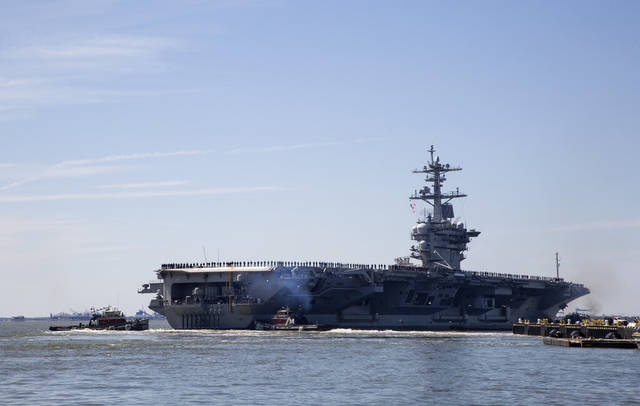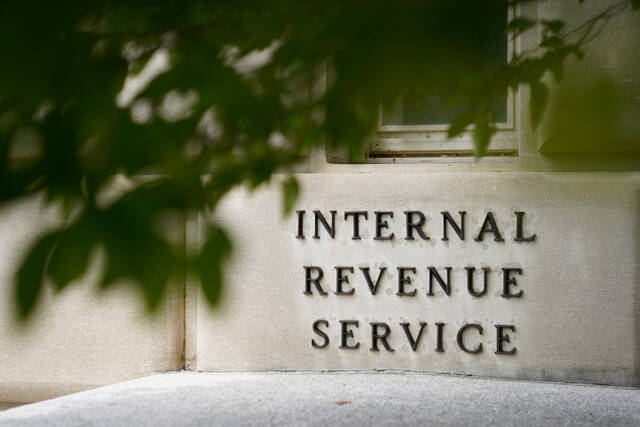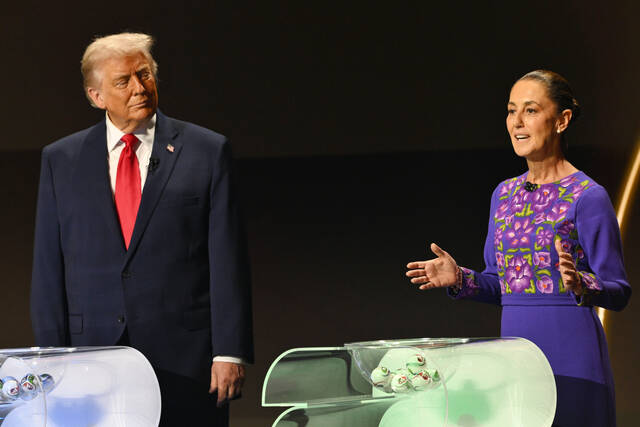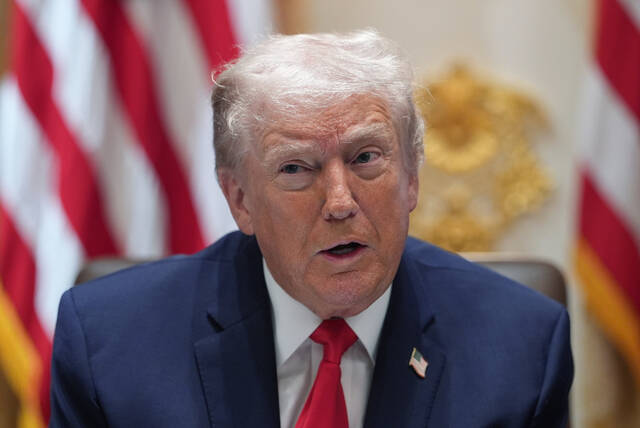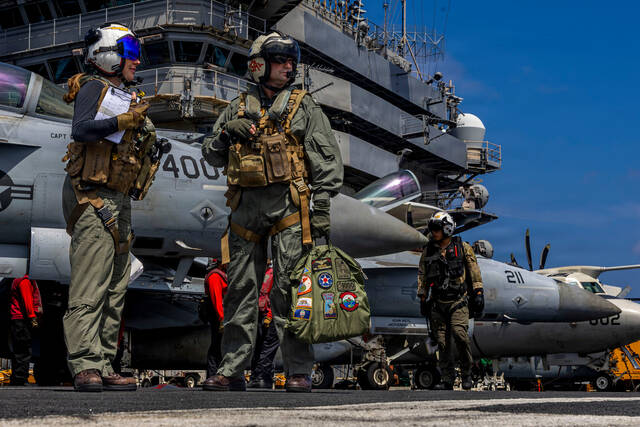WASHINGTON — The Trump administration is sending an aircraft carrier and a bomber task force to the Middle East, the White House said Sunday, in a show of force aimed at Iran.
“In response to a number of troubling and escalatory indications and warnings, the United States is deploying the USS Abraham Lincoln Carrier Strike Group and a bomber task force to the U.S. Central Command region to send a clear and unmistakable message to the Iranian regime that any attack on United States interests or on those of our allies will be met with unrelenting force,” national security adviser John Bolton said in a statement.
“The United States is not seeking war with the Iranian regime, but we are fully prepared to respond to any attack, whether by proxy, the Islamic Revolutionary Guard Corps, or regular Iranian forces,” the statement said.
NEW: US is deploying an aircraft carrier and a bomber task force to the Middle East in response to "a number of troubling and escalatory indications and warnings" by Iran and "to send a clear and unmistakable message to the Iranian regime," NSA Bolton says in statement. pic.twitter.com/gonfifAzyO
— NBC News World (@NBCNewsWorld) May 6, 2019
A defense official, speaking on the condition of anonymity because he was not authorized to discuss the matter, said there were indications “that Iranian forces and proxies were making preparations to possibly attack U.S. forces in the region.”
But neither Bolton nor the Defense Department identified what actions Iran may have taken that would prompt an increased U.S. military presence in the region. The United States has significant naval, air and ground forces already deployed in the Middle East.
The administration blames Iran for fueling instability across the Middle East, and Bolton has been a longtime advocate of using military force against the government in Tehran. The statement, issued in Bolton’s name, was released late Sunday evening without elaboration.
The move follows actions by the administration designed to increase “maximum pressure” on Iran. On Friday, the State Department announced new restrictions on Iran’s civil nuclear program, saying it would not fully renew sanction waivers that allowed other countries to participate in nonproliferation projects there as part of the Iran nuclear deal.
President Trump withdrew the U.S. from the deal last year, and he has gradually increased pressure on other signatories, including Britain, France and Germany, to do the same. They have refused, and late Saturday issued a sharply worded statement emphasizing their “continued commitment” to the agreement, and noting Iran’s “continued compliance” with its terms.
NEW: US Dispatching Carrier + Bombers to Middle East.
— Joyce Karam (@Joyce_Karam) May 6, 2019
John Bolton Warns #Iran as tension, threats Up in Hormuz strait, Iraq against US troops. @TheNationalUAE https://t.co/UVz6hWWn7i
Late last month, U.S. waivers were canceled that had allowed eight countries to gradually phase out their purchase of Iranian oil since sanctions on Iranian exports were reimposed in November.
In early April, the administration designated the Islamic Revolutionary Guard Corps as a terrorist group, the first time that such action has been taken against an official arm of a foreign government.
The Islamic Revolutionary Guard Corps designation had stoked fears that Iran might retaliate against U.S. personnel or interests in the region, possibly via one of an array of armed proxy groups that include Lebanese Hezbollah and Shiite militias in Iraq.
Thousands of U.S. service members are stationed at large bases in Bahrain, Qatar and other locations in the area, while troops in Iraq and Syria continue to conduct operations targeting the Islamic State group.
The Nimitz-class Lincoln left the port of Norfolk, Va., earlier this spring.


